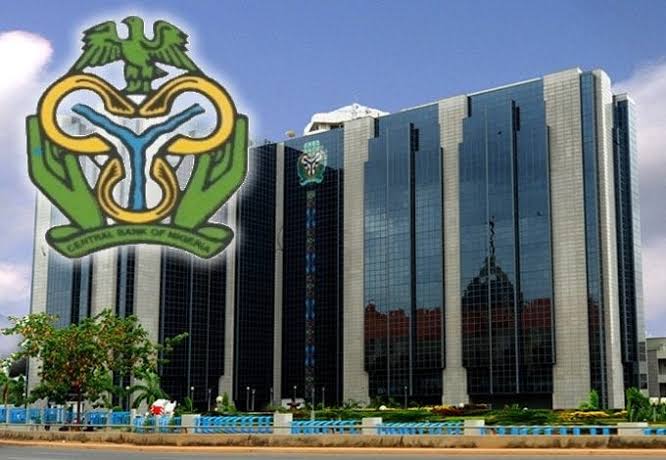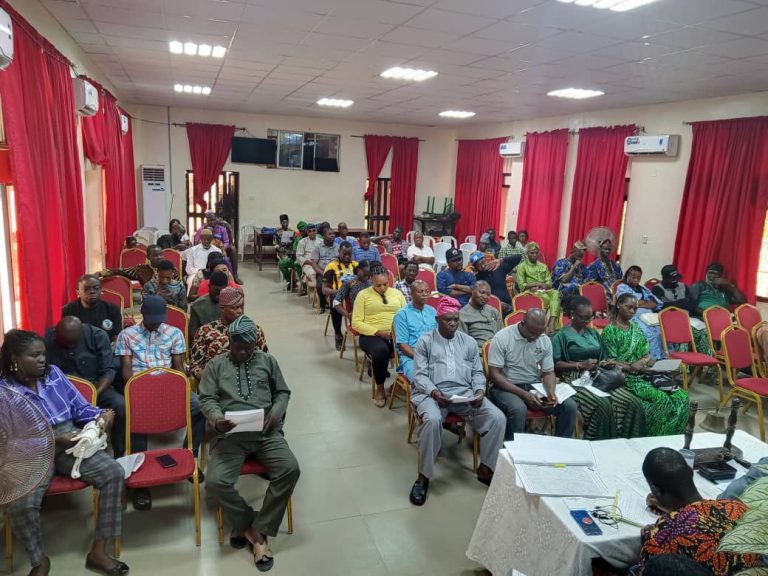
“CBN MAKES HISTORIC MOVE: SLASHES INTEREST RATE TO 27% FOR FIRST TIME IN 3 YEARS”

GREATRIBUNETVNEWS–THE Central Bank of Nigeria (CBN) has reduced its benchmark interest rate by 50 basis points to 27%, marking the first rate cut since May 2023. CBN Governor Olayemi Cardoso announced this decision after the 302nd Monetary Policy Committee (MPC) meeting in Abuja .
Key Highlights:
– Interest Rate Reduction: The Monetary Policy Rate (MPR) now stands at 27%, down from 27.5%.
– Cash Reserve Ratio (CRR) Adjustment: CRR for commercial banks reduced to 45% from 50%, while merchant banks’ CRR remains at 16%.
– Liquidity Ratio: Retained at 30%.
– Asymmetric Corridor: Adjusted to +250/-250 basis points around the MPR.
Rationale Behind the Decision:
The CBN’s decision to cut interest rates is based on the recent moderation in inflation, which has declined for the fifth consecutive month to 21.12% in August. The country’s economy grew by 4.23% in the second quarter of 2025, with notable growth in agriculture, services, industries, and oil sectors .
Impact on Economy:
The rate cut aims to stimulate economic growth, support economic stability, and ensure sufficient liquidity in the financial system. However, Nigeria’s interest rate and inflation remain among the highest in Africa, with Ghana and South Africa having lower rates
The CBN Governor Olayemi Cardoso, who chaired the MPC, highlighted several positive economic indicators, including a significant slowdown in inflation.
According to the communiqué, headline inflation dropped to 20.12% in August 2025 from 21.88% in July, driven by declines in both food and core inflation. On a month-on-month basis, headline inflation fell sharply to 0.74% in August from 1.99% in July. Core inflation eased to 20.33% from 21.33%, reflecting lower costs in services, housing, utilities, transport, and logistics.
Food inflation also moderated to 21.87% from 22.74%, attributed to declining prices of staples such as rice, guinea corn, maize, and millet.
Economic output showed resilience, with real GDP growth rising to 4.23% in Q2 2025, up from 3.13% in Q1. The oil sector was a standout performer, growing by 20.46% compared to 1.87% in the previous quarter, bolstering foreign exchange reserves and supporting exchange rate stability.
Gross external reserves stood at a robust $43.05 billion as of September 11, 2025, with an import cover of 8.28 months, while the current account recorded a surplus of $5.28 billion in Q2 2025, up from $2.85 billion in Q1.
The MPC also said that sustained disinflation, driven by monetary policy tightening, exchange rate stability, increased capital inflows, and a surplus current account balance, has helped anchor inflation expectations.
Other contributing factors include moderated prices of Premium Motor Spirit (PMS) and increased crude oil production.
The Committee expressed concern about excess liquidity in the banking system, largely due to fiscal releases from improved government revenues, which could pose risks to macroeconomic stability.
To boost monetary policy transmission, the MPC adjusted the width of the standing facilities corridor to boost interbank market transactions and ensure market stability.
The Committee also called for continued policies to deepen foreign exchange liquidity and attract capital inflows, emphasizing the critical role of a stable foreign exchange market in achieving rapid disinflation.
The MPC commended the resilience of Nigeria’s banking system, with most financial soundness indicators remaining within prudential benchmarks. Significant progress was noted in the ongoing bank recapitalization exercise, with 14 banks fully meeting the new capital requirements.
The Committee urged the CBN to sustain policies ensuring the successful completion of this exercise.
Besides, the termination of forbearance measures and waivers on single obligors was praised for promoting transparency, risk management, and long-term financial stability, with the MPC reassuring the public that any impact from these measures is transitory and poses no threat to the banking system’s soundness.
The MPC noted that globally, economic recovery is expected to improve due to favorable trade negotiations and monetary policy easing in advanced economies.
But, geopolitical tensions and trade uncertainties could disrupt global supply chains.
Global inflation is projected to continue decelerating, albeit slowly, prompting a cautious, data-driven approach to monetary policy in emerging markets.
The CBN projects sustained disinflation in the coming months, driven by lagged effects of previous rate hikes, exchange rate stability, and declining PMS prices.
The onset of the harvest season is expected to increase food supply and further moderate inflation.
The MPC reiterated its commitment to price stability and proactive, data-driven policy responses.







